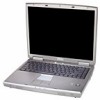Dell Latitude 100L Owner's Manual - Page 70
Performance and Maintenance, Pick a Category - restore
 |
View all Dell Latitude 100L manuals
Add to My Manuals
Save this manual to your list of manuals |
Page 70 highlights
www.dell.com | support.dell.com FILE LOCATION: C:\Documents and Settings\patricia_drake\Desktop\New Folder\D5016c70.fm To use Device Driver Rollback: 1 Click the Start button and click Control Panel. 2 In the Control Panel window, under Pick a Category, click Performance and Maintenance. 3 In the Performance and Maintenance window, click System. 4 In the System Properties screen, click the Hardware tab. 5 Click Device Manager. 6 In the Device Manager window, right-click the device for which the new driver was installed, and then click Properties. 7 Click the Drivers tab. 8 Click Roll Back Driver. If Device Driver Rollback does not resolve the problem, then use System Restore (see page 72) to return your operating system to the operating state it was in before you installed the new driver. Using the Drivers and Utilities CD If using Device Driver Rollback or System Restore (see page 72) does not resolve the problem, then reinstall the driver from the Drivers and Utilities CD. 1 Save and close any open files, and exit any open programs. 2 Insert the Drivers and Utilities CD. In most cases, the CD starts running automatically. If it does not, start Windows Explorer, click your CD drive directory to display the CD contents, and then double-click the autorcd.exe file. The first time that you run the CD, it might prompt you to install setup files. Click OK, and follow the instructions on the screen to continue. 3 From the Language drop-down menu in the toolbar, select your preferred language for the driver or utility (if available). A welcome screen appears. 4 Click Next. The CD automatically scans your hardware to detect drivers and utilities used by your computer. After the CD completes the hardware scan, you can also detect other drivers and utilities. Under Search Criteria, select the appropriate categories from the System Model, Operating System, and Topic drop-down menus. A link or links appear(s) for the specific drivers and utilities used by your computer. 5 Click the link of a specific driver or utility to display information about the driver or utility that you want to install. DELL CONFIDENTIAL - PRELIMINARY 3/18/04 - FOR PROOF ONLY 70 Solving Problems















